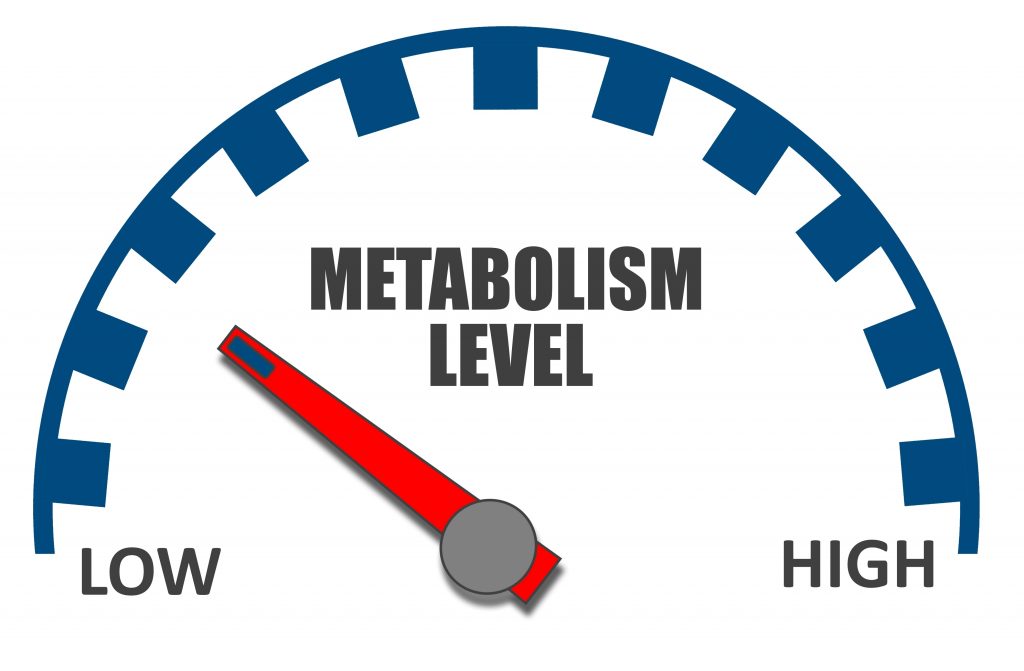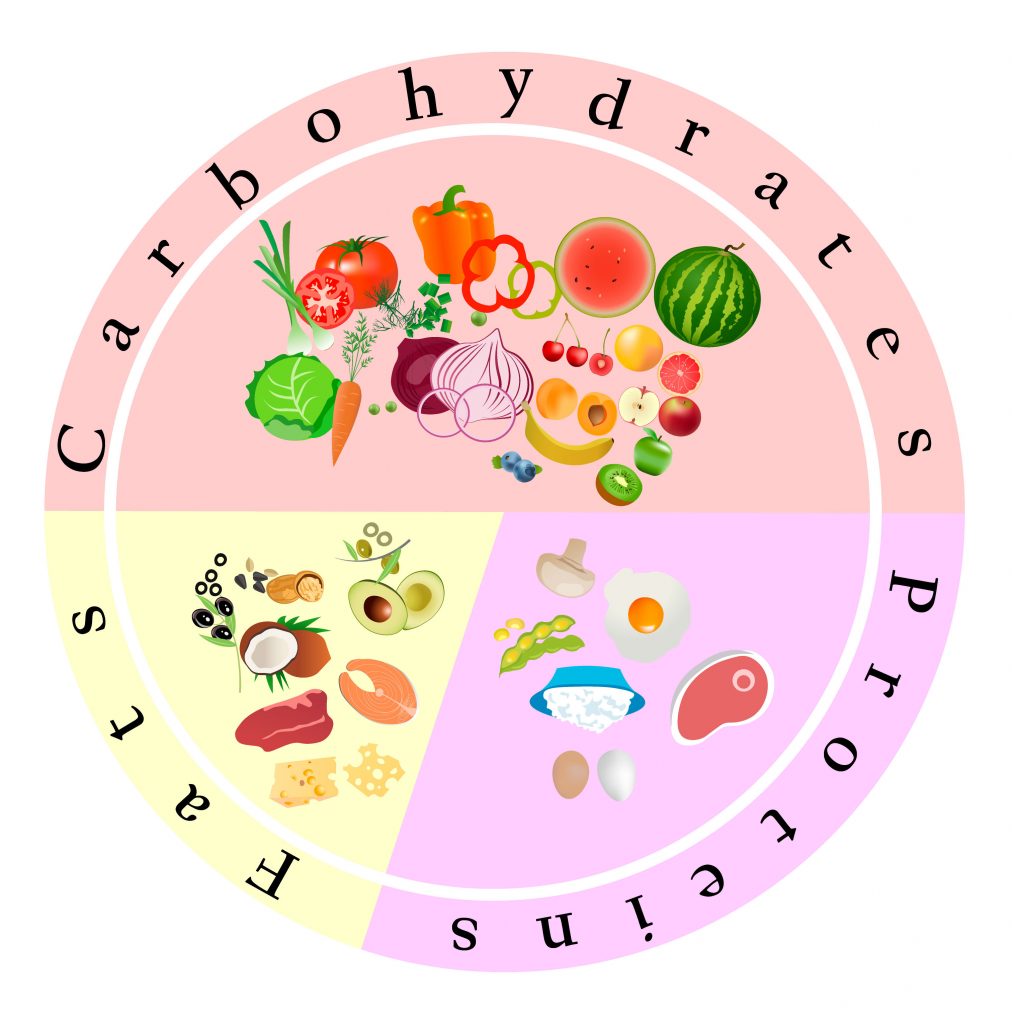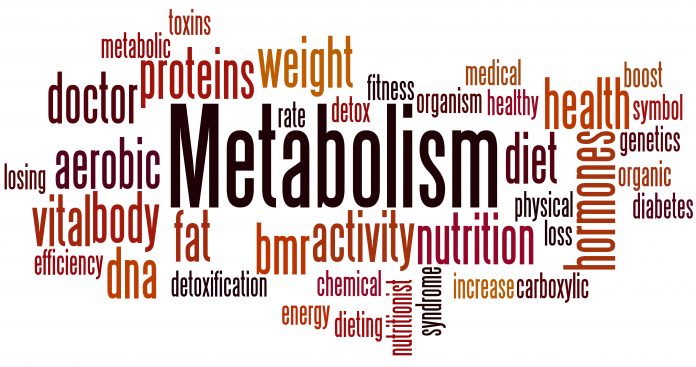Metabolism is the new buzzword when it comes to losing weight, recapturing your vitality, and living a full and active lifestyle. And the reason is simple – people are tired of the quick fix, fad solutions that ultimately fail to bring any long-term results.
At the heart of the mystique that surrounds this sciency term are the deeper hidden secrets that control just about every process that goes on in your body.
Learn how to master your metabolism and you win at living a healthier life in a leaner body.
But all too often, people trying to lose weight don’t even know what metabolism is, let alone how to get it working well so they have an easier time achieving their goal and keeping it off.
What Is Metabolism?
Simply put, “metabolism” refers to the rate at which your body burns calories and converts what you eat into energy so you can sustain bodily functions. And while your metabolism is a naturally occurring process, it’s largely affected by our life choices such as your diet and eating habits, the status of your overall health, whether you’re male or female, your hormones, whether you do or don’t exercise, how well you sleep, and many more.
So essentially, YOU hold the key to a steady effective metabolism or one that has taken a downturn because you haven’t included some “best practices” for keeping your metabolism healthy and revved.
Here are 3 myths surrounding metabolism that we need to clear up in order to ensure you can unlock your body’s own natural “fat burning furnace”. Allow us to explain…
Myth #1: Eating Less Is Better for Your Metabolism
When it comes to losing weight, it’s a given that you should eat less. In fact, most weight loss experts will agree that this is a “must” in order to see timely and consistent results. In addition, this is also a premise of some diets that advocate a form of fasting in their weight loss approach.
But the problem arises when you eat too low of a calorie amount each day that stalls your mighty metabolic engine.

Then, instead of having an internal engine that is running on all cylinders and naturally burning through everything you eat, you end up with one that is potentially crawling along and barely able to process even the lower amount of calories you are eating.
This is why you should refrain from a very low calorie level for more than 3 weeks at a time. Our research, based on actual testing of people’s metabolism while dieting, shows that once you go beyond 3-4 weeks, your metabolic rate takes a downturn and slows, causing you to plateau or rebound back to your original starting weight.
Myth #2: Cardio Is the Best Workout for Your Metabolism
While you may be able to rack up the mileage on the treadmill or the elliptical so the display says you’ve burned a few hundred calories, cardio exercise isn’t the optimal metabolism-boosting workout. In fact, when it comes to exercise, simply ‘burning calories’ is often mistaken for increasing metabolism.
On the contrary, the best way to increase your metabolism through exercise is to perform exercise that stimulates and fatigues your muscles… all of your muscles. Increasing your RMR (Resting Metabolic Rate) requires re-building or even building some muscle that can burn calories even when you’re not working out. The best way to do that is with resistance exercise, like strength training.
Myth #3: Eating More Of One Type Of Macronutrient Revs Your Metabolism
Many of the popular diet approaches today advocate eating more of one macronutrient (protein, carbs, or fat) than the others. For example, some diets claim that eating more protein will increase your metabolism’s burn rate so you burn more calories. Other diets claim that eating more fat while keeping protein and carbohydrate to a minimum is most effective and good for losing weight and keeping your metabolism healthy.

But our research from testing individuals with sophisticated scientific metabolic instruments in our Metabolic Weight Loss & Exercise Performance Center indicates that there is virtually no difference if you eat more one macronutrient over another.
But our research from testing individuals with sophisticated scientific metabolic instruments in our Metabolic Weight Loss & Exercise Performance Center indicates that there is virtually no difference if you eat more one macronutrient over another. In fact, our testing results
The Takeaways?
- When metabolic testing is unavailable, most women should never lower their calorie intake below 1,200 calories per day; for men, that number is 1,600 calories. This will ensure timely consistent weight loss from stored fat while keeping your metabolism burn rate adequate and healthy to see the job to its completion.
- Regarding exercise for improving your body’s metabolism in the weight loss process, we advocate two 30-minute resistance exercise sessions that adequately stimulate all of your major muscles. This can add approximately 30% more weight loss for your efforts.
- And finally, we recommend eating a more balance diet that includes healthy,
high-water content carbohydrate foods (vegetables and fruit), and smaller amounts of high-density foods that include protein and fat. This approach allows your fat-burning metabolism to stay “stoked” so you can easily burnthe all of the foods you eat AND some of the calories you have stored as fat.
Rich Farina, M.S. is a Metabolic Health and Conditioning Specialist with over 30 years of experience helping thousands of individuals lose weight, rebuild their metabolisms, and improve their health in his Metabolic Testing & Weight Loss Centers.
He holds both Bachelor of Science and Master of Science degrees in Exercise Physiology and Public Health respectively and is a passionate advocate of using proven, scientific principles in his approach to exercise and nutrition.
He is a contributing author, professional speaker, and advisor on topics that include weight loss, human performance, and medical fitness.
He continues his deep-seated passion to help people improve their health and longevity through his own line of premium, all-natural nutritional supplements called Truthentics™. The Truthentics™ brand of nutritional supplements is specifically designed to help people compensate for nutritional deficiencies and bring their bodies back into balance.









